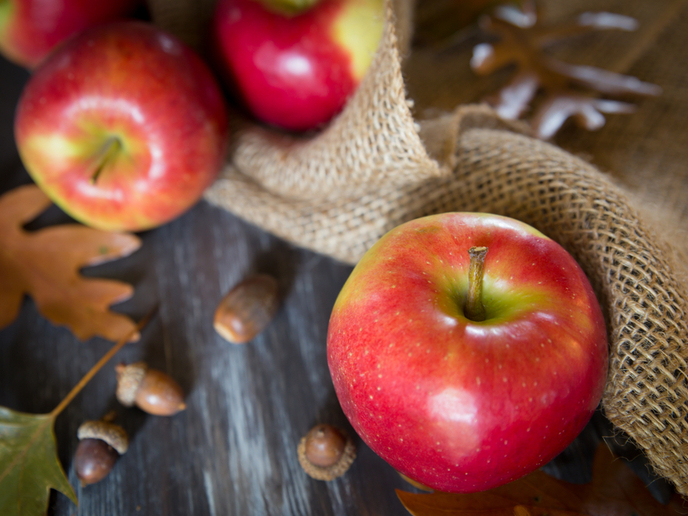Exploring microbe genetics in apples and oaks
To be able to feed the world’s growing population, we need higher yields of disease-resistant, hardy crops that can be grown on the same amount of land. With crop improvement in mind, scientists have been sequencing the genomes of plants and the bacteria, fungi and other microbes they host. A worldwide study(opens in new window) conducted with support from the EU-funded Apple-Biome project is now contributing to this store of knowledge with valuable information on the microbiome – the genetic material of the microbes living on and inside – of domesticated apples. The research findings have been published in the journal ‘Environmental Microbiology’. One of the most popular edible fruits across the globe, apples are kept for up to 12 months in cold storage. Preventing the spread of post-harvest pathogens during this time is therefore vital in order to ensure fruit quality and safety. In their study, the research team examined the microbiome of the Royal Gala apple, focusing on the composition and likely regional differences in the cultivar’s microbiome. The results showed that the composition and structure of the apple’s fungal and bacterial communities when the crop is harvested vary from one region to another and depend greatly on the region’s climate and management practices. Additionally, fungal diversity varied substantially in apples harvested in different geographical locations, suggesting a possible connection between location and the type and frequency of post-harvest diseases in each country. “Despite the variations we observed in the apple microbiome, we were still able to identify a so-called ‘core’ microbiome i.e. members of the microbiome that are shared globally among the apples,” observes study lead author Ahmed Abdelfattah of Apple-Biome coordinator Graz University of Technology, Austria, in a news release(opens in new window) posted on the ‘EurekAlert!’ website. “This global ‘core’ microbiome is represented by several beneficial microbial indicators and makes up a large portion of the fruit’s microbial community.”
Microbiome inheritance
In a related study(opens in new window) also funded by the Apple-Biome project, a different team hypothesised that a plant’s microbiome doesn’t only originate from its environment but is also partially inherited from the parent plant. To test their hypothesis, the researchers built a state-of-the-art culturing device to grow oak seedlings in a microbe‐free environment while keeping below- and above-ground tissues separated. Having chosen the oak plant because of its abundance in Europe’s forests, they found that oak acorns contain a high level of bacterial and fungal diversity and that oak seedlings inherit their microbiome from them. “The idea that seeds can be the link between the microbes in the mother tree and its offspring has frequently been discussed, but this is the first time someone proves the transmission route from the seed to the leaves and roots of emerging plants,” states Abdelfattah in a news item(opens in new window) posted on the Apple-Biome website. “Several breeding companies are taking into consideration the seed microbiome in their programs hoping to have super plants with better genes and better microbes. One technique used, is to treat seeds with beneficial microorganism [sic] with the aim that those microbes will eventually colonize the plant and exert their effects throughout the plant’s life,” comments Abdelfattah in the same news item. The 2-year Apple-Biome (The origin, distribution, and dissemination of the apple microbiome) project ends in December 2021. For more information, please see: Apple-Biome project website(opens in new window)



